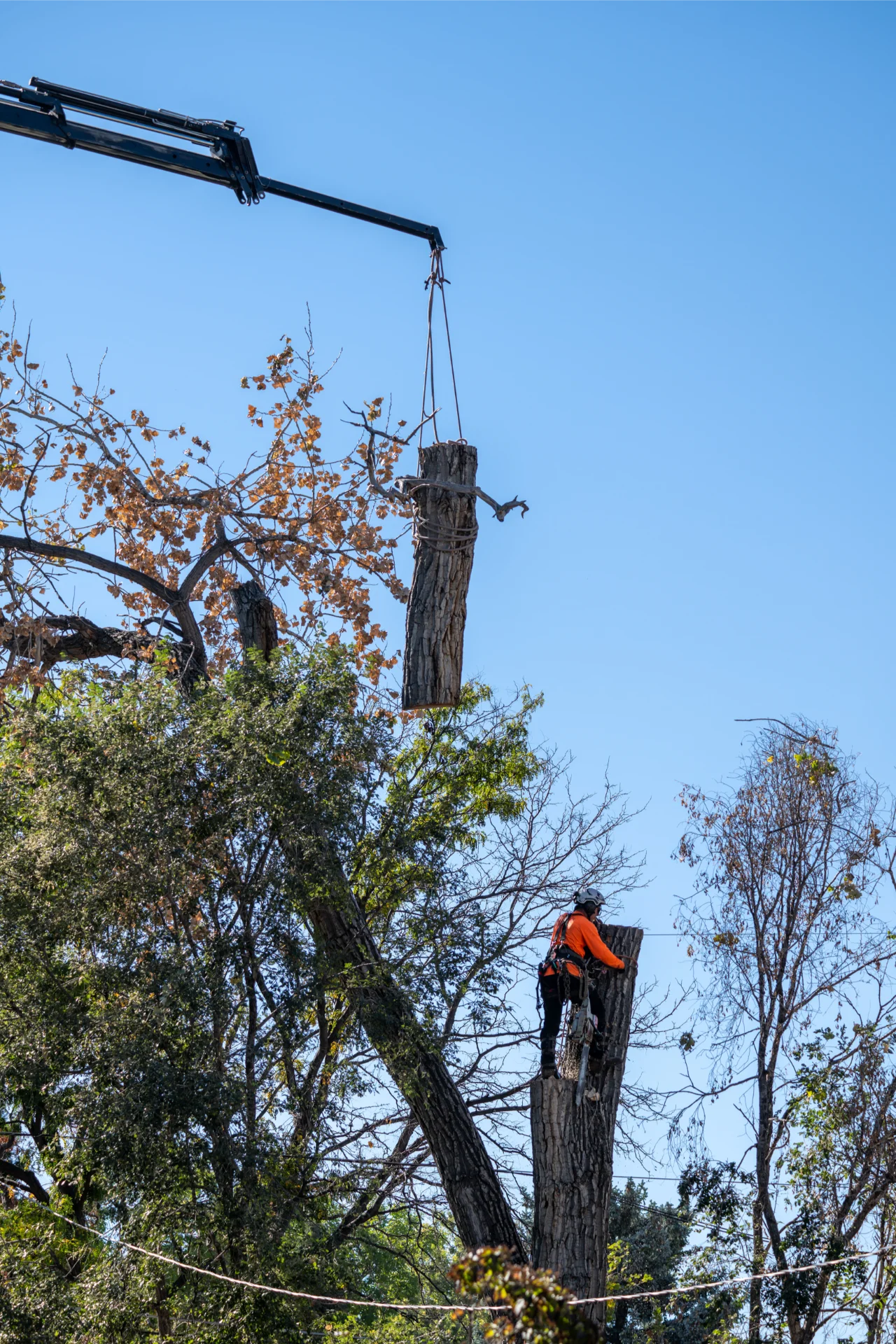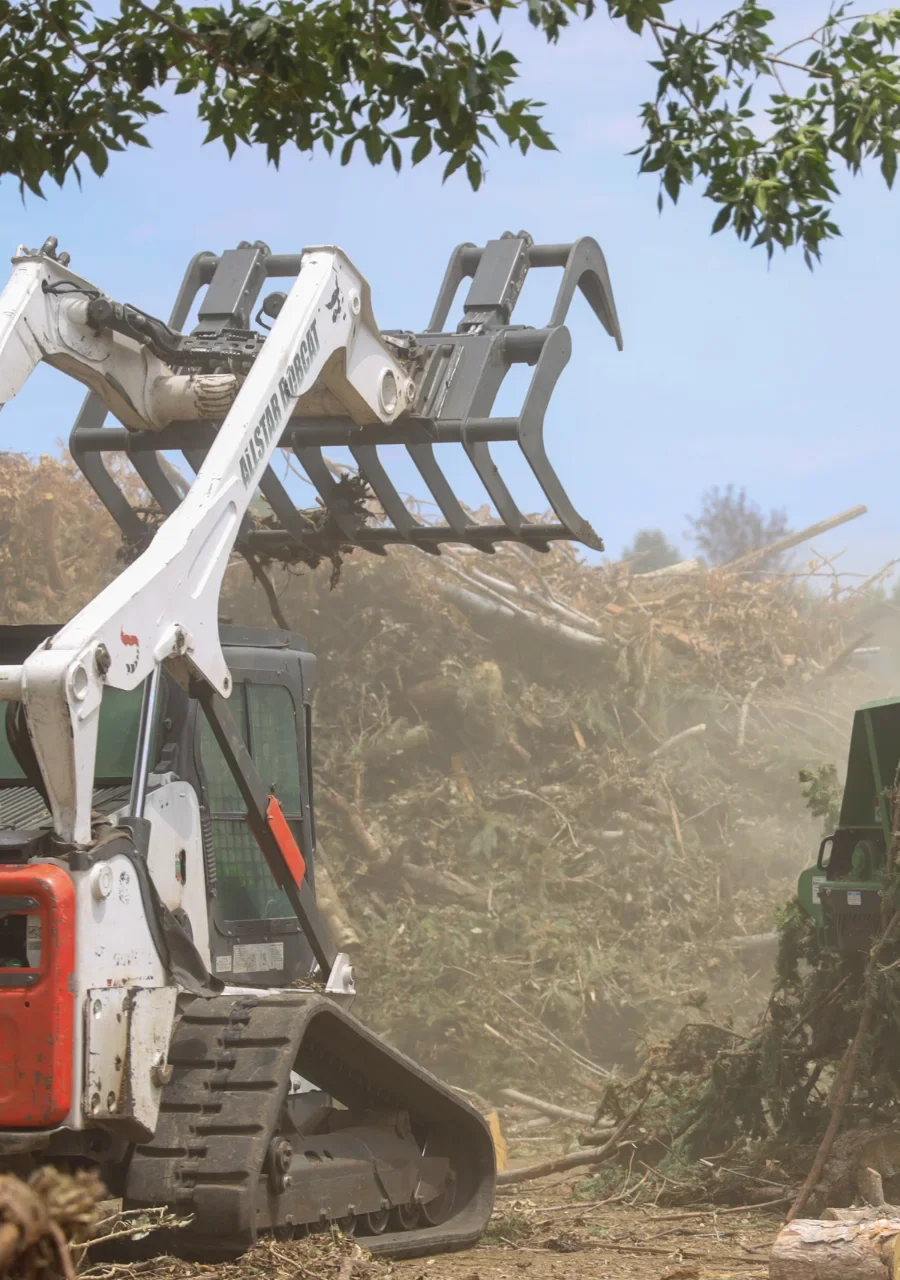Tree removal
Why remove dead & dying trees?
While we prefer to keep trees intact and healthy, we recognize that there are often situations which require the removal of a tree. Dead and declining trees present a safety hazard, posing a risk to both property and health. A tree that was planted too close to a structure may need to be removed as it outgrows its location. A tree with a structural defect may require removal before it is given a chance to fail. Regardless of the reason, removing a tree is often a complex process requiring attention to detail and a focus on safety.
Our team of skilled arborists provides comprehensive tree removal services, including removing trees that pose a risk to overhead power lines, buildings, or other structures. Falling branches or trees can cause significant damage to power lines, resulting in power outages, property damage, and even personal injury.
Working with a professional in the field is always better, especially for complex tree removals. Our team has extensive knowledge and experience to handle even the most challenging tree removal scenarios, ensuring minimal disruption to your property and surroundings.
When removing trees, our team follows strict safety protocols, utilizing state-of-the-art equipment to complete the job efficiently and with minimal environmental impact. We also ensure that we adhere to all regulations and guidelines, making the process as stress-free and straightforward as possible for our clients.
At N&D Tree, we prioritize the safety and well-being of our clients and their surroundings. Whether you require tree removal due to power line hazards, building or structure risks, or need a tree removed for safety reasons, we have the expertise to handle it all. Trust us for all your tree removal needs, and we’ll work with you every step to ensure a safe, efficient, and professional removal process.

Remember Your Permit for Public Right-of-Way Tree Removal
Removing a tree within the public right-of-way in Denver is against city code without a permit, even if it's partially on your property. This means you could face legal and financial consequences if you remove a tree without the necessary permit. Obtaining a permit ensures that the removal process is safe, regulated, and doesn't harm the environment or other properties. By remembering to obtain a permit for public right-of-way tree removal, you can avoid potential legal issues and ensure a safe and responsible removal process.
OUR COMMITMENT
Customer Satisfaction Guaranteed
At N&D Tree LLC, we dedicate ourselves to delivering customized tree care solutions to various clients. Our expertise covers numerous sectors, such as utility companies, municipalities, fire mitigation services, commercial and residential properties, property management, homeowners associations, insurance companies, and forestry and natural resource management organizations. For an immediate response feel free to give us a call anytime.
Need a quote?
Get a FREE estimate today!
From tree care to crane services and everything in between, N & D Tree & Crane Services is your go-to partner for any project. Contact us today by filling out our brief form to schedule your free estimate.
